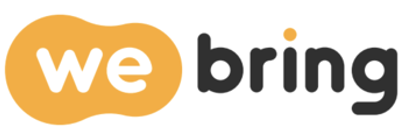South Korea’s education system attracts international students from all over the world with its high academic standards and a wide range of programs. Many students are eager to experience K-POP, K-dramas, and Korean culture, while also hoping to expand their career opportunities in East Asia by earning a degree from a Korean university. However, applying to a Korean university from overseas is never an easy process. Many students often struggle particularly with paperwork preparation. In this article, we’ll cover essential points to keep in mind when Admission to Korean Universities — including practical application tips, academic document verification, and effective document preparation strategies.
1) Basic Research Before Applying: Checking University Requirements
Each Korean university has slightly different admission requirements. Some institutions prioritize Korean language proficiency and may require a TOPIK (Test of Proficiency in Korean) level 3 or 4 and above. Others operate international studies programs taught in English and ask for separate English language test scores such as TOEFL or IELTS. Therefore, before applying, you should visit the website of your target university or department to review the international student admission guide first.
Application deadlines differ among universities, and there may be separate admission tracks such as regular and rolling admissions. Be careful not to confuse degree programs with exchange or language courses. The most efficient approach is to shortlist a few target universities and carefully read the admission guides or PDFs provided on each school’s Office of International Affairs website.

2) Application Writing Tips
While most Korean university application forms follow a standardized structure, some schools require additional materials such as essays, self-introductions, or study plans. A common mistake that international applicants make is translating their stories too literally into Korean or English, resulting in awkward or unnatural phrasing. Admission officers prefer applications that convey information clearly and sincerely. Therefore, it’s better to use a concise and genuine tone rather than overly complex sentences.
Applicants should clearly describe their motivations and academic goals. Instead of saying something simple like “I came because I like Korean culture,” you can write something more specific such as, “Korea’s faculty and research environment in international economics are outstanding, and I hope to develop into an expert in East Asian economic cooperation through this program.” Be truthful about your grades and background, but highlight any noteworthy achievements, extracurricular activities, or volunteering experiences.
3) Academic Record Verification and Document Authentication
When submitting academic documents from abroad, you may need to get your transcripts and diplomas certified or legalized so that Korean universities can recognize them. For instance, you might be required to obtain an Apostille certification or a Consular Legalization, and some universities may also ask for a WES (World Education Services) evaluation report.
Because document authentication procedures differ by country, you should check in advance how to get your documents certified in your home country. For example, U.S. documents can be processed through the Apostille system, while countries not part of the Apostille Convention may require separate legalization procedures. It’s best to consult your current school, local notary office, or the Korean consulate in your country for accurate guidance. Begin the process early to ensure you can submit everything before the application deadline.
4) Financial Proof and Scholarship Opportunities
Many Korean universities require applicants to submit financial proof to demonstrate their ability to cover tuition and living expenses. Usually, a bank balance certificate is needed. Although the required amount varies by school, most universities ask for proof of funds between USD 10,000 and 20,000 or more. Since balance certificates are valid only for a limited time after issuance, plan their submission dates carefully in accordance with your application timeline.
On the brighter side, there are numerous scholarship programs offered by the Korean government and universities. The Global Korea Scholarship (GKS) and university-specific scholarships for outstanding international students are prime examples. Check the eligibility criteria and required documents carefully, and make sure you apply before the deadline. Receiving a scholarship can relax your financial proof requirements and allow for a more comfortable study experience in Korea.
5) Proof of Korean and English Language Proficiency
If you’re applying to a program that requires Korean language proficiency, the TOPIK score is virtually mandatory. Some universities conduct interviews in Korean, and if you fail to reach a specific level (for instance, Level 4 or higher), they may ask you to complete additional language courses after enrollment. If your TOPIK score is not yet sufficient, consider starting at a Korean language institute before moving on to a degree program.
For majors taught primarily in English, check whether TOEFL or IELTS scores are needed. Since these scores usually remain valid for only two years, take the test early and secure your results in advance. Some universities waive English proficiency requirements for applicants from English-speaking countries, so be sure to verify if this policy applies to you.
6) Letters of Recommendation and Essays: Effectively Telling Your Story
Some Korean universities require letters of recommendation from professors or recognized institutions. Since recommendation letters are an essential part of many overseas application processes, it’s a good idea to prepare them early. Choose recommenders who know your academic abilities, personality, and potential well. Briefly describe your relationship and explain why the recommender’s opinion adds value to your application — this helps the university understand the context.
When writing essays or personal statements, avoid plagiarism or exaggerated claims. Focus on presenting your authentic experiences and academic goals logically. Korean universities pay close attention to not only academic competence but also your reasons and passion for studying in Korea. Rather than describing Korean culture as a mere hobby or curiosity, explain how your interest connects to your academic or professional future with a clear and concrete vision.
7) Interview Preparation Strategies
Many Korean universities require interviews for international applicants as well. Interviews may be conducted online, and questions can be asked in Korean or English. Typical questions include “Why did you choose this major?”, “What are your future goals?” and “How do you plan to adapt to life in Korea?” Prepare your personal narrative beforehand and practice answering calmly and logically.
The interview also serves to directly evaluate your language proficiency. For Korean interviews, make sure your pronunciation and expressions are clear. During English interviews, speak confidently, and if you don’t understand a question, it’s perfectly fine to ask for clarification. Creating a list of sample questions and practicing with friends or family can be a big help.
8) Document Deadlines and Follow-Up Actions
Document submission deadlines at Korean universities are strict. While a few schools accept postmarked submissions, most require that the documents physically arrive by the deadline. When sending materials through international mail or courier services, allow sufficient delivery time. Using international express services like DHL or FedEx is advisable so you can track your shipment and confirm delivery.
After sending your application, check via email or the university’s online portal to confirm that your documents were received properly. If any items are missing or additional documents are requested, respond immediately. Since late submissions are usually not accepted, pay extra attention to deadlines and requirements.
Conclusion
Although applying to Korean universities may seem complex, it’s absolutely a worthwhile challenge if you prepare step-by-step. Be honest and specific in your application, and carefully manage procedural requirements like academic certification and financial proof. Submitting accurate documents all at once will help your review process proceed smoothly without unnecessary delays.
Korean universities are increasingly welcoming students from around the world and offering diverse scholarships and support programs for international learners. If you have clear goals and passion, studying in Korea can open new perspectives and opportunities. Prepare proactively, and we wish you great success in your academic journey in Korea.

K-Name Studio: Create your perfect Korean name based on your personality and style.
What’s My K-Beauty Personal Color?
WeBring Service : Provides personalized services to foreigners living in Korea
Exclusive offer: Introducing foreign car rental in Korea, WeBring-SoCar

